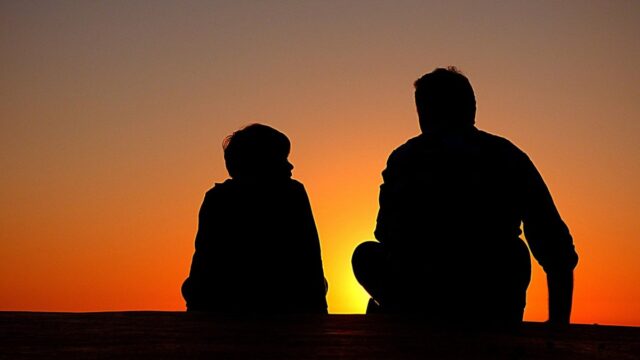The Kids Might Be Alright

For a man writing about family issues, one of the perils is that you’ll be seen as a “father blogger.” There are many reasons I’d like to avoid this, including the fact that I am relatively new to parenting and do not consider myself an expert. Moreover, the activity of a father blogger seems dangerously close to that of a multi-level marketer or a pusher of miracle supplements.
And yet, here I am, writing in praise of Timothée Chalamet for proclaiming the goodness of having children at a time when so many people are swearing off parenthood as an unnecessary, unwanted, and undesirable burden—an infringement on one’s freedom to do as one pleases, even if that means doing nothing at all.
In a conversation with Vogue, the 29-year-old star of Dune recalled watching an interview with a friend in which an unnamed individual was “bragging about not having kids and how much time it afforded them to do other stuff.” According to Chalamet, he and his friend turned to each other: “Like, holy shit. Oh my God. Bleak.” He added that having children “could be on the radar” for him.
Social media users accused Chalamet of “glorifying breeding” and of “alienating people with infertility or trauma.”
Of course, Chalamet did no such thing, but the vitriolic reaction was to be expected, given the prevailing attitude toward children these days, especially among the young people who constitute his fan base.
In June, Pew Research reported that Americans in their 30s and younger are planning to have fewer children than people in that age range did even a decade ago. “The total number of children that women and men ages 20 to 39 planned to have, on average, dropped from 2.3 in 2012 to 1.8 in 2023,” an analysis of government data revealed.
A different Pew survey asked adults without children why they had chosen to forego parenthood. The top response for those under 50 was that they simply didn’t want them. Six-in-ten among that same group also said that “not having kids has made it easier for them to be successful in their job or career and to have an active social life.” Another top reason for not having children was affordability, a sentiment that will likely grow as the economy and job market deteriorates.
Some people simply are not meant to have children, meaning life has taken them in a different direction. Some are never afforded the opportunity to have them. Others are of the sort that it would be a tragedy for all involved if they did have children. But on balance and for most people, raising a family is good and natural, and it speaks to the unnaturalness of our times that saying so is considered controversial, as Chalamet discovered.
His comments likely would not have been so poorly received had he chosen a word other than “bleak” to describe the absence of children from one’s life. That adjective, it seems, was what really struck a nerve. I can understand that, especially for those who may want children but feel they somehow missed the boat, or that parenthood is involuntarily out of their reach.
But I wonder if those people understand what Chalamet was trying to convey, even if clumsily. What I mean to say is, I can understand why someone who does not have children would not want them, would find it too tall an order, always outside their ken. But now that I have children, the prospect of life without them is simply unimaginable.
Watching them grow up, come into themselves, develop little (or big) personalities in which you can see shards of yourself and your spouse, see them imagine, dream, and hope, see their eyes filled with joy at the mere sight of you. How could you go back to a time without them?
Time is a river. It flows ceaselessly in one direction. Heraclitus said that no one can step into the same river twice, for neither he nor the river remains the same; they are constantly changing. Our lives are in an endless state of flux. We always arrive at the banks as different people. Parenting is probably the closest thing we have to time travel, for now, because it allows us to relive moments of our own past and create moments for our children that we wish we had experienced. Not having that possibility does seem bleak to me. That is not to say one cannot live a happy life without children. I just couldn’t imagine it any other way for me, and maybe it is a sign of some positive change that young people like Chalamet—who have not yet experienced it—seem to sense there could be something more meaningful and wonderful in this life than the alluring lights of fame.
https://chroniclesmagazine.org/web/the-kids-might-be-alright
